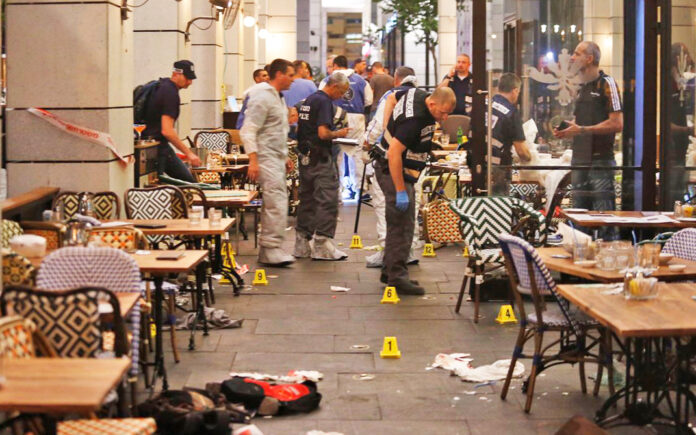First published by Stuff and Dominion Post
The recent shooting of Al Jazeera journalist Shireen Abu Akleh ignited social networks and media outlets with accusations that Israel had committed a war crime by deliberately targeting the journalist.
Tragically, Abu Akleh was caught in the midst of a gunfight in an Israeli anti-terrorist operation in Jenin, a terrorist hot-bed. Israel has called for the Palestinian Authority to co-operate in an investigation, but the Palestinians are refusing to hand over evidence. In all likelihood, without Palestinian co-operation, the truth will never be known. However, that didn’t stop media outlets, Palestinian leaders and their supporters from repeating the unsubstantiated claim that Israel deliberately targeted her.
The background to the conflict in Jenin was the spate of terrorist attacks on Israeli citizens in the past two months. Nineteen civilians in Israel have been murdered in seven separate terrorist attacks since mid-March. The latest attack in Elad was a particularly brutal axe murder which took the lives of three men and left 16 children fatherless.
Did these deaths provoke an outpouring of rage and grief on social media? Were there calls for the images of the 19 murdered Israelis to be projected on public buildings? To the contrary, Palestinian social media was awash with celebratory posts, while Palestinian leaders praised the bravery of the terrorists and declared, “We will trample over the skulls of the Zionists; Israel will be annihilated”. While overseas leaders expressed sympathy for the murdered, New Zealand’s leaders and media were largely silent.
How is it that the world routinely turns a blind eye to the murder of Israelis? Partly, it’s due to a dominant narrative that posits Israel as a colonialist foreign occupying force that has progressively displaced an indigenous people through ethnic cleansing. However, this popular narrative bears little relationship to reality.
Jews are the indigenous people of the regions of Judea (Judea and Jew both derive from Judah, a son of Jacob/Israel) and Samaria, also known as the West Bank. It is in Israel that Jews had their ethnogenesis, developed their unique culture and maintained a continuous presence for more than 3000 years. This despite expulsions and dispossession at the hands of successive colonising powers.
In the 19th century Jews returned to their ancestral land in greater numbers and Europeans and Arab leaders alike recognised that the land belonged to the Jews. The British Mandate for Palestine came about in much the same way as Mandates for Syria, Lebanon, Iraq, Jordan, Saudi Arabia and Yemen – each carved from the remnants of the Ottoman Empire, defeated in World War I.
Palestinians have recently commemorated Nakba which they argue was a “systematic transfer and replacement” of their people. However, for Israel, the war that broke out following the Declaration of Independence on 15 May 1948 was defensive and existential. Attacked by five Arab armies, the fledgling Jewish state fought for its life. Three years after the Holocaust, and during a period in which the world shut its doors to all but a few Jewish refugees, Israel had no other choice.
In contrast, the Arabs in British Mandate Palestine had options. The Arab Higher Command urged Arab inhabitants to flee to neighbouring states (in many cases their birthplaces or the homes of relatives), with the promise they could return once the Jews had been defeated. Or they could stay, as many chose to do, and become citizens of the new state. Today Arab Israelis serve in the highest levels of society.
Nor was the expulsion of approximately 850,000 Jews from Arab lands, where they’d lived for centuries, a systematic “transfer or replacement of Palestinians”. Jews in Arab lands were viciously beaten or murdered, banished from homes and forced to leave behind property. The new Jewish state absorbed all such refugees.
While the Palestinian narrative garners western support, it is a political construct based more on fantasy than fact. This narrative readily weds itself to classic anti-semitic tropes to demonise Israelis. In addition, religious ideology drives much of the hatred towards the Jewish state.
The recent clashes at the Temple Mount were incited by Palestinian leaders claiming that Al Aqsa Mosque was under threat, a proven tactic for inciting the masses. The recent axe attack occurred after a Hamas leader called for Israelis to be killed with cleaver, axe, knife or gun. Many Palestinians are brought up with an ideology of Jew hatred pushed from childhood, through school curricula and in the mosques. Incentivisation to kill Jews in a pay-to-slay policy drives some to become martyrs.
The only peace they envision is one in which Israel ceases to exist – that is what “from the river to the sea, Palestine will be free” means. With Iranian-backed terrorist groups Hezbollah, to the north, and Hamas, to Israel’s south, and western commentators propagating a false Palestinian narrative, violence and contention look likely to continue.



